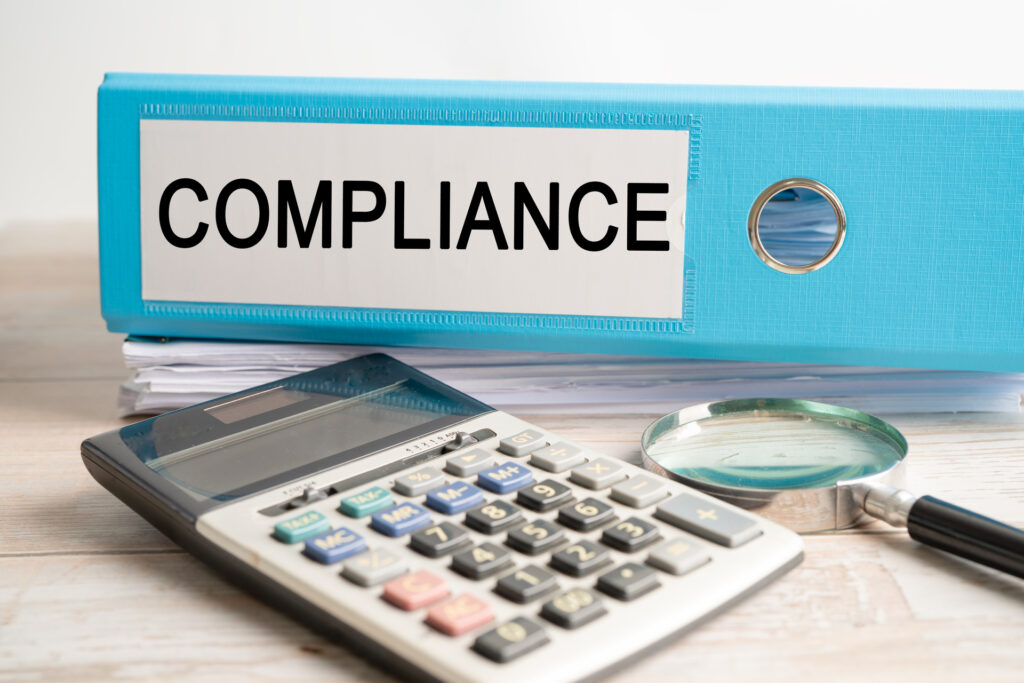Table of contents:
Operating a credit business can be challenging, particularly when dealing with the numerous legal requirements. One major option that still gives businesses a headache is Regulation F. This bulky combination of instructions is as elusive as it is exhaustive. As a result, many agencies find themselves paying fines at different times because they never properly broke it down.
Certain niches may find it exhausting to interpret this complex law. But we’ll help you dissect the key areas you should consider. This way, your business can work around its requirements better and avoid violations. But first, what is it about? Who should be concerned about this controversial law?
What’s Regulation F?
Regulation F is a law that focuses on collection practices. It focuses on one primary goal: to protect consumers from different unfair actions dished out by debt retrievers. The rule comes from the Fair Debt Collections Practices Act (FDCPA).
The Bureau of Consumer Financial Protection (CFPB) enforces this. The law became necessary because of numerous instances of unacceptable practices by debt agencies. Consumers have reported numerous instances of abuse and harassment from these collectors. Other times, the cases bordered on false or misleading representations. Therefore, we established the rule on November 30, 2020, and it became effective precisely one year later.
Does Regulation F Affect My Business?
As a stakeholder, you’re subject to the credit business’s many laws. However, Regulation F supersedes everything before it, making it a top priority. Given its emphasis on consumer protection, it’s crucial to avoid any potential violations. This is due to the rule’s numerous violations, which can result in heavy fines.
But it only applies if you’re a debt collector. The rule defines this as anyone who manages collection activities on behalf of another entity, either an individual or an organization. The definition applies to those who hire third-party agents. Entities that collect their debts under a different name also fall under this umbrella.
This logic states that the FDCPA and Regulation F apply to your business if any of the following situations occur:
- Collection agencies
- Collection law firms
- Debt buyers
- Loan service
- Individual debt collectors working in any of these businesses
Six Areas a Creditor Should Consider About Regulation F
The rule comes with an extensive list of requirements, which can make understanding it overwhelming. But you can water it down by noting its main areas. This lets you input the right adjustments in your business and avoid penalties.
If this law applies to you, be aware of the following requirements:
Its Scope
The consensus is that Regulation F only affects third-party collectors. Most stakeholders assume that credit entities are exempt from its list. But this is far from true, and ignoring it can lead to serious penalties.
First, most credit businesses qualify as “debt collectors” under the law’s definition. Secondly, even if they don’t meet the legal definition of ‘debt collectors’, they should thoroughly understand the requirements before engaging a vendor. Third, various state and federal laws mandate that these providers comply with Regulation F instructions. Therefore, credit bodies, whether partially or fully, still fall under its jurisdiction.
Collection Communication Methods
The most direct interpretation of Regulation F is that it’s a consumer-contacting law. This means that it instructs credit businesses on the appropriate collection communication procedures. The law considers past instances in which collection agents have overstepped their bounds. Therefore, it sets guidelines that restrict communication between consumers and credit firms.
This implies that the law has established guidelines for the use of email, text messaging, and voicemail in debt collection processes. It even sets a limit on the number of phone calls you can make to a consumer in a given period. Plus, it provides consumers with leverage to choose their preferred communication channel. Therefore, once you understand these channels, you can adapt your business to align with the flow.
Judgment Calls
Here’s a summary of Regulation F’s key requirements:
- The 7-in-7 Rule: The debtor must receive no more than seven collection calls within seven days. It comes with a few exceptions.
- Place of Employment: A debt collector shall not contact consumers at work. Also, subject to exceptions.
- Time of Day: No contact before 8 AM or 9 AM of the consumer’s local time. Certain states have different restrictions.
- Limited Content Message: Voicemails to debtors must carry certain components. These include mandatory and optional conditions, according to the FDCPA.
- Reasonable Procedure Rules: Sending emails and texts requires the consumer’s consent. This excludes private and work domains, and consent must be remade every 60 days.
- Itemization Dates: A debt collector can mention the debt’s amount to the consumer on one of five dates. The collector includes the last statement, charge-off, last payment, transaction, and judgment dates.
- Retaining Records: Collectors must document collection activity for three years. The records must begin on day one of the debt collection activity.
- Model Validation Notice: Collectors must share validation information with debtors. These include disclosures, debt details, consumer protections, responses, and itemization date options.
However, the CFPB also offers safe harbors that go with the law’s many rules. This implies that agents are responsible for making judgment calls on specific decisions. Therefore, the creditor must take a more active role to ensure that their agents do not cross any boundaries.
Frequent Third-Party Collections
The law includes guidelines on how debt agencies can share client information during calls or texts. Therefore, these agencies and officers can follow various verification steps to protect such details from unauthorized persons. However, if these agencies and officers function as third-party agents, the creditor may be required to undertake these verification steps instead. This implies that they conduct these verification processes to ensure that their third-party agents are eligible for the protection provided by the law.
The rule also mandates the collector to reveal information about the debt to those concerned. Therefore, creditors will be required to provide this information to their third-party collectors. The CFPB requires collectors to obtain this information.
Its Complexity
From the surface, the provisions seem pretty straightforward. However, upon closer examination, it becomes evident that the provisions encompass multiple layers of instructions and guidelines. The industry tailors each to meet specific debt collection actions.
For example, one section may permit a practice, but a sub-section of another part may restrict it. Therefore, creditors must be involved in fully interpreting the requirements. Entrusting the task solely to the collection entities can lead to disastrous outcomes. If they don’t, you will be held accountable for the offenses.
State Law Reviewing
Though this rule is considered superior to all previous installments, it’s still subject to state laws. That’s because most U.S. states and cities have established statutes on debt retrieval. Some state laws also revolved strictly around the federal debt collection rule. The variations mean they can interpret sections of the rule with different meanings.
So, credit bodies need to have an in-depth understanding of how these laws relate. This helps them direct their debt collectors to the correct compliance actions.
How We Can Help
North South Tech simplifies Regulation F compliance through practical technology solutions that protect both consumers and your business interests. We’ve developed software that monitors communication frequencies, automates consent tracking, and maintains detailed records of collection activities.
Our systems help you navigate the complexities of state-specific requirements while streamlining your debt recovery process. Our solution safeguards consumer rights and optimizes your collection workflow, transforming regulatory challenges into operational advantages. Schedule a meeting to see how our technology can make Regulation F work for your business.





